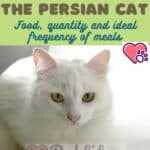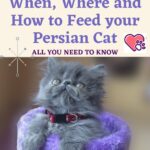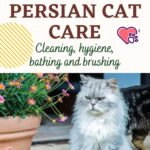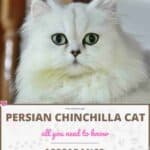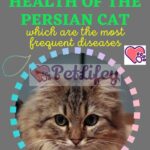Persian Cat: Food and Nutrition
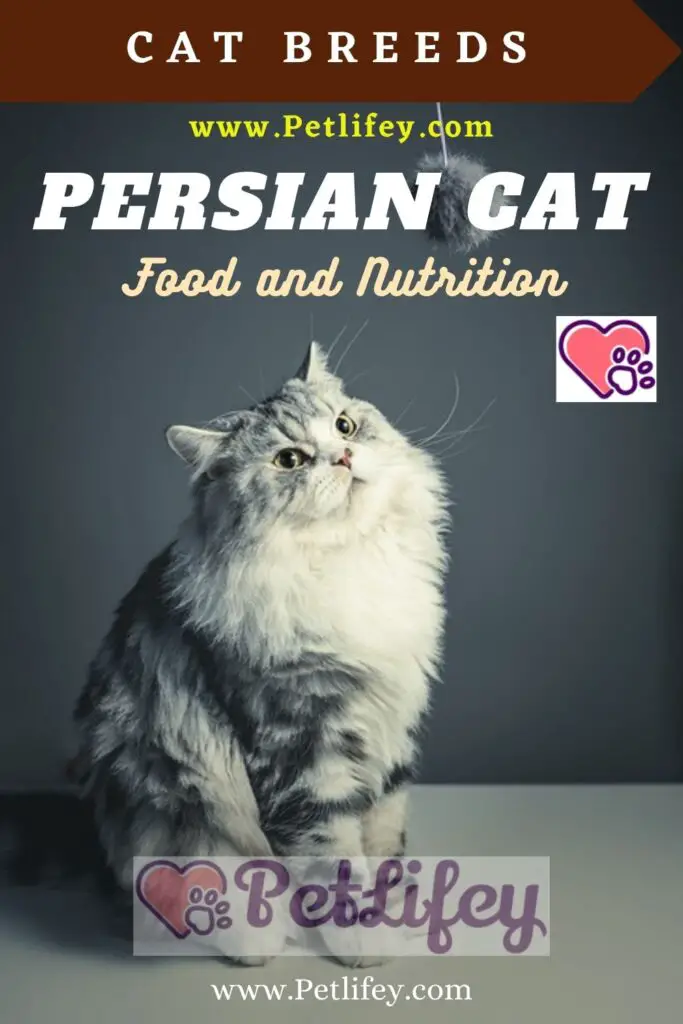
What can differentiate the Persian cat from other cats is the relationship between what it eats and its activities.
The Persian cat is a slow -moving cat that is generally inactive and not excited. On the other hand, while licking it swallows balls of its long hairs which obstruct its intestine .
In this case, you will have to pay particular attention to the diet of the Persian cat.
With a Persian cat, the accident must be on the preservation of the hair and on its shine . A poorly groomed Persian cat looks miserable, even though it has eaten its fill.
Give him vitamins only on the advice of the veterinarian because if it is true that the Persian cat must be helped for his intestinal transit , a bad distribution of vitamins could on the other hand harm him.
The Persian cat is a cat that can live in good health, but it is also a rather fragile animal that needs attentive care.
What does the Persian eat?
The Persian cat is a perfect city dweller . It is a delicate cat that does not expend a lot of energy: it must therefore receive sufficiently rich food but in small quantities.
He must also receive food that is easy to digest and that promotes his intestinal transit .
Do not forget to give him the vitamins: they give him a beautiful coat .
The veterinarian is the only person who can decide in favor of cooked or raw, depending on the state of health of your Persian cat. Usually it combines the two.
It would seem that a ration of a hundred grams per day of boiled fish or grilled meat is suitable for the average Persian cat.
But this must be determined according to your cat’s own size and not according to an average.
In the case of an older or very young cat , finely minced meat is more suitable.
If your Persian cat has a prognathic jaw, that is to say a protruding jaw, it will have difficulty shredding pieces: it is, then, preferable to feed it with minced meat .
FATS
In general, veterinarians recommend adding a small teaspoon of oil to the Persian cat’s diet once a week.
There too he will have his preferences, it is up to you to know how to recognize them.
You will have to be careful not to stain his collar when giving it to him, otherwise these drops of oil, falling, will form a ball of sticky hair that you will have to cut.
Margarine and lard are reputed to be digestible and particularly energetic .
So, if you give it to your Persian cat, you will have to take into account the fact that he moves little, that he is not a great athlete.
Butter, rich in vitamin A, should in no case exceed 5% of the weight of its food.
The cat needs fats of animal origin, while its human master needs fats of vegetable origin.
TYPE OF MEAT
It’s up to you to provide him with what he needs depending on the type of meat you give him:
- lean meat
- fatty meat
You can give the fat from the ham to your Persian cat, he likes it and digests it very well.
THE VEGETABLES
Pulses should be avoided, but green, cooked vegetables can be part of their diet. They supply him with vitamins in an appreciable proportion.
It should be noted that the cat likes asparagus. The Persian cat, more than any other, will need vegetables to facilitate its intestinal transit.
In the absence of vegetables that your Persian cat may refuse to swallow, you can give him green grass in the summer or lettuce leaves in the winter.
You have to present the stalks of grass to him vertically , as in a bouquet, he will eat them by tilting his head to one side.
He will grab them with his molars and not with his front teeth. Cats also like the tender leaves of celery heart .
You can also sow oat or barley seeds in a pot. He will take care of picking them himself according to his needs.
Meat for Persian Cat
Beef is the most digestible. If it is too lean, it would be a good idea to add a little fat such as soybean oil or a little butter .
Mutton is also very digestible but it is better to choose the leanest pieces.
Pork , which is much more indigestible, is not recommended.
Veal meat will certainly please him. It is suitable for cats that need to follow a light diet.
It is only a diet meat , which is insufficient, unless otherwise advised by your veterinarian, for a normal diet.
Pork or beef liver are very rich. They must be boiled, because eaten raw they can cause vomiting and diarrhea by fermentation. About the diet of the Persian cat, the Persian cat being fragile intestines and digestive system, we must avoid him give certain foods that can lead to certain complications.
Kidneys are excellent for the cat. They can be eaten cooked or raw, but since they are very rich, they should not be included in the Persian cat’s daily meal. they can be served once a week.
Beef heart is nutritious, it’s a muscle.
The lung must be cooked and come from healthy animals. Although bulky, it is very little nutritious.
It is not suitable for the Persian cat. It will fill his stomach when he certainly has a small ball of hair that already encumbers him.
Tripe is very nutritious and very energetic . but they are not suitable for the Persian cat which needs more refined food.
Especially since the tripe should be eaten without being washed to retain all of its nutritional value: this is how the poor hunters fed themselves.
Food requirements of the baby Persian Kitten
When your Persian cat is still a kitten and has just been weaned, that is to say around the age of 8 to 10 weeks, give it food supplements such as an egg yolk raw , milk on a plate with some very finely chopped beef.
How to get him used to eating this on his own? Quite simply, by wetting your finger and giving it to him to lick.
You will lead him to the saucer and the food of the Persian cat. You will also get another result by doing this: you will create a very strong bond with your Persian cat.
You will thus impregnate it with yourself, this famous impregnation that Professor Lorentz discovered with his greylag geese .
Weaning must be done gradually so that his little stomach gets used to it.
It is better to feed a kitten several times a day when it is very small, rather than giving it food once a day. It is better to break it up.
At 4 months, your Persian cat is well weaned and has become accustomed to its food rich in:
- protein
- mineral salts
- vitamins
His teeth may be hurting him. The veterinarian will give you a product to relieve his pain, but never use products intended for your young children without talking to your veterinarian first.
Give him small cubes of meat to shred so that he exercises his young gums, to pass his toothaches.
Its meat must be at room temperature , neither cold nor frozen . It would be a mistake to give him bones at this stage of his life, because he could injure his swollen gums.
A kitten should drink plenty of water . He must have it constantly at his disposal and to get him used to it you must patiently let him taste it with your fingertip.
It should be non-icy cold water even in the middle of summer, otherwise he may get diarrhea .
What Food should you avoid to give the Persian Cat
The cat does not eat like the man, so table scraps can only be a treat (to be avoided, but it pleases the master so much).
It is absolutely forbidden to give him spicy meats .
Fresh bread is also forbidden, his stomach is not made to digest it.
You should avoid giving him very hot foods and frozen foods . Your Persian cat would be able to override it out of greed, but it’s up to you to be more reasonable than him.
The Persian cat is an easy-going being. It’s a tricky one, but it accommodates your own whims. He is one of those who are not afraid of change.
You just have to observe one imperative rule : watch the quantity of his food taking into account the sensitivity of his digestive system.
The Persian cat needs a balanced diet of oil, fat and vitamins. He needs yeast in order for his skin to look nice and well cared for .
The Persian cat has abundant fur, an abundant undercoat: its skin is therefore not very accessible and everything that can cause itching, anything that could be similar to eczema , must be avoided at all costs .
Brewer’s yeast helps prevent such disorders .
Domesticated Persian Cat Food Habits
But the Persian cat has been domestic for so long that it is better not to play the naturalist.
It is said that raw meat facilitates the assimilation of phosphorus, that it is more digestible for a cat’s stomach, that it retains its minerals, its chlorides and its phosphates .
But it is also said that cooked meat destroys the parasites that could infect your Persian cat, that it makes you lose the fats necessary for a carnivorous stomach .
Feeding a Pregnant Persian Cat
The pregnant cat needs a more studied diet. It needs many food supplements:
- yeast
- calcium
- vitamins
Balanced Diet for Persian Cat
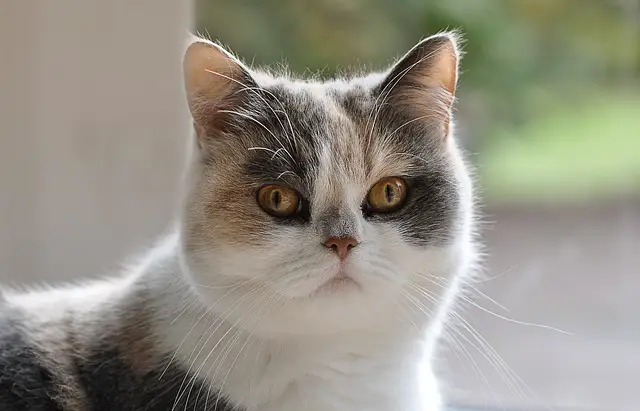
However, it is better not to decide for yourself and to rely on the advice of your veterinarian who will establish a balanced diet suitable for your Persian cat.
It’s dangerous for fashion, or the fanciful advice of well-meaning friends.
Your Persian is likely to have tantrums . The Persian cat is capricious, it seems that he is aware of his beauty, his superb fur and that he finds it normal that the world is at his feet.
Your Persian cat is going through a change in her body, and even though she was programmed to procreate, she feels this change .
You can satisfy his whims, they will disappear with the birth. Otherwise… you will re-educate her!

